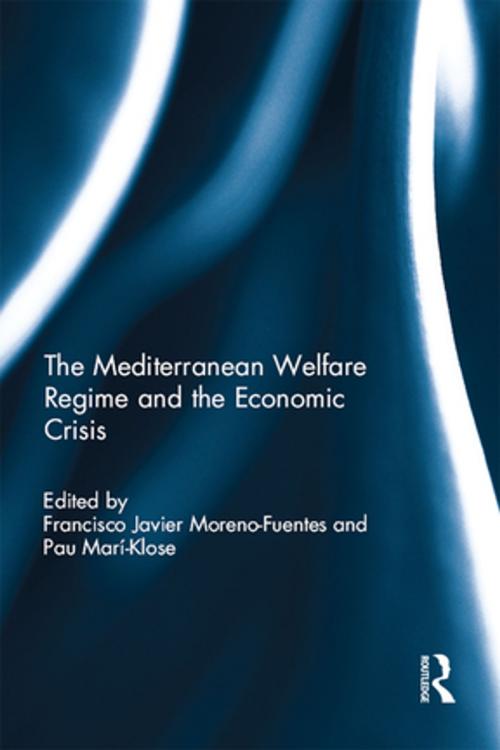The Mediterranean Welfare Regime and the Economic Crisis
Nonfiction, Social & Cultural Studies, Social Science, Sociology| Author: | ISBN: | 9781317661238 | |
| Publisher: | Taylor and Francis | Publication: | January 8, 2016 |
| Imprint: | Routledge | Language: | English |
| Author: | |
| ISBN: | 9781317661238 |
| Publisher: | Taylor and Francis |
| Publication: | January 8, 2016 |
| Imprint: | Routledge |
| Language: | English |
This book examines the recent evolution of the Mediterranean Welfare regime, and how the economic crisis may be contributing to redefine its basic traits. Moving from the macro comparative analysis of long-term socio-demographic trends to the study of specific welfare programs, the chapters included in this book employ a variety of methods and approaches to review the specificities of the Mediterranean Welfare model. All chapters aim to analyze the role that the recent transformations experienced by Southern European societies (ageing, increasing women labour market participation, decreasing expectations for care within the family, immigration) have had over this model. The basic characteristics of this regime type are supposed to be strongly grounded in the values shared by these societies (familistic tendencies, clientelism, lack of generalized trust), but the modernization which these countries experienced in recent years have contributed, with a different speed and to a different degree, to a significant transformation in their axiological foundations. The impact of the current fiscal and economic crisis on the Mediterranean Welfare regimes may be contributing to the growing de-legitimatisation of political systems of these countries, something particularly important in a region that established democratic regimes only (relatively) recently.
This book was originally published as a special issue of European Societies.
This book examines the recent evolution of the Mediterranean Welfare regime, and how the economic crisis may be contributing to redefine its basic traits. Moving from the macro comparative analysis of long-term socio-demographic trends to the study of specific welfare programs, the chapters included in this book employ a variety of methods and approaches to review the specificities of the Mediterranean Welfare model. All chapters aim to analyze the role that the recent transformations experienced by Southern European societies (ageing, increasing women labour market participation, decreasing expectations for care within the family, immigration) have had over this model. The basic characteristics of this regime type are supposed to be strongly grounded in the values shared by these societies (familistic tendencies, clientelism, lack of generalized trust), but the modernization which these countries experienced in recent years have contributed, with a different speed and to a different degree, to a significant transformation in their axiological foundations. The impact of the current fiscal and economic crisis on the Mediterranean Welfare regimes may be contributing to the growing de-legitimatisation of political systems of these countries, something particularly important in a region that established democratic regimes only (relatively) recently.
This book was originally published as a special issue of European Societies.















